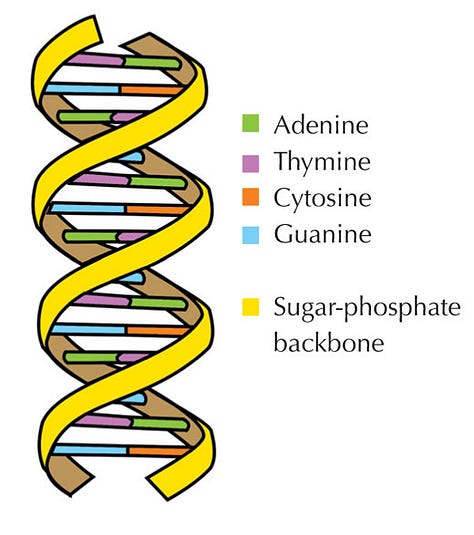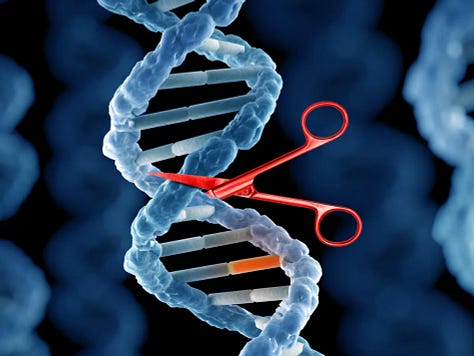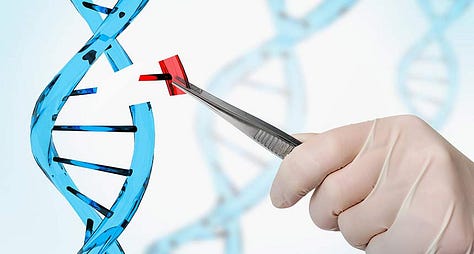


I recently watched the 1997 dystopian film GATTACA. This 20th century film is still popular and still stirs so many questions in the viewers’ minds. It even gets a rating on IMDb and Rotten tomatoes with an average of about 80%.
What caught my attention was that the film revolves around questions such as: are we defined by our genes? Can the gene editing become the norm? What are the consequences of gene editing?
Are we defined by our genes?
Genes are the smallest unit of inheritance and are defined as a part of DNA that when turned on will code for proteins. This means that we carry genes that code for proteins showing as a phenotype, but not all genes undergo this translation. There are regulatory enzymes with the main role of activating or deactivating these genes. So, one can carry genes for certain diseases but never get these diseases.
In the film GATTACA, the protagonist (Vincent) had a genetic profile that left his parents uneasy and worried about him. When they wanted a brother for Vincent, they decided to go through the route of genetically selecting the baby but to an extent. They consulted with a geneticist who said “this is your baby, he is the best of you” inferring that the genes they carry without any editing, that is left to chance, would lead to Vincent!
But Vincent, who had a risk of heart disorder of 99%, a risk of ADHD of 89%, had a dream— to fly into Space. Unfortunately, he was classified in the dystopian world of GATTACA as an in-valid, meaning he would never be chosen for such an elite job. He knew and said “my resume is in my cells.”
What the film portrays is that society identifies us based on our genes. But we are not our genes. There are many factors that influence the outcome of our health besides our genetic make-up. For example, lifestyle and environment. They play a crucial role in determining the outcome of our genetic inheritance. Our lifestyle adds molecules to our DNA in certain locations without changing the DNA sequence itself. What’s great about this is that we can reverse the undesirable outcomes by changing our lifestyle and our environment.
Can gene editing become the norm?
In GATTACA, Vincent’s brother had a genetically edited DNA. But what is gene editing? The human genome is very large. DNA is a long double-stranded helix of 3 billion base pairs. The DNA is squeezed into our cells, but if you want to unfold it, it would be two metres long! The way it is squeezed into the cell is by being coiled several times to fit into about 10 micrometre-in-diameter cells. To edit a gene, we need to uncoil the part that contains that gene before we do any manipulations. It is a very complex process but scientists succeeded in doing it.
A very interesting system called CRISPR-Cas 9 is used to edit these genes. After identifying the gene to be modified, the protein Cas 9 introduces what is called a guide RNA to cut the gene at a specific location. Then the required modification is introduced: be it removal, replacement, or insertion of a fragment of a sequence of A’s, T’s, C’s, and G’s in the location where the cut was introduced. This process of identifying the gene, cutting, and inserting the needed modification is similar to a document where you identify the change you want to introduce, then you copy and paste the changes.
So now we ask: can gene editing become the norm? The answer is that gene editing occurs in cows and plants. The issue is not the technology itself. It has been proven to be useful in so many instances. Increasing the crop yields, making the plants able to resist draughts, resist diseases, or grow on salty water are a few of genetic editing triumphs. When it comes to editing the human germline, this is where a line is drawn. Germlines are the reproductive cells that results in new human beings. There are so many regulations and laws that are devised for not going there.
Finally, in the film, there was no law for preventing germline gene editing, and the result is a dystopian world where people are discriminated against based on their genes!



I haven’t watched GATTACA, but now I am interested in watching it:)
Is it true that the genetically modified plants, especially fruits, tastes less flavorful? I don’t think so, but this is what our parents and grandparents usually assume!
Editing the human germline is a much more complex issue. It might start with good intentions, like preventing diseases in future generations. However, it makes me think how this could unintentionally lead to world where people are discriminated against based on their genes.